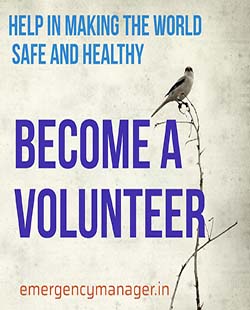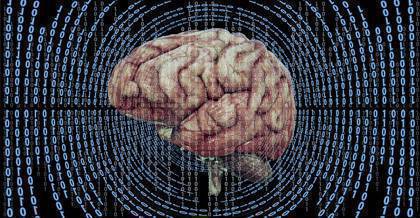

 Deepak Chopra, MD, FACP, FRCP
Deepak Chopra, MD, FACP, FRCP

It would surprise people to learn that the sentiment quoted above—“I use my memories—I don’t let my memories use me”—is a telltale sign of higher consciousness. In fact, any step in the direction of personal evolution loosens the grip that memory has on us. If you want to know what blocks you from experiencing bliss, joy, fulfillment, love, and creativity, the chief culprit is memory.
The reason is that the story you and everyone else are living right now is a tangled web of memories. Memory gave you your bad habits, fears, old hurts, remembered humiliation, rejection, and lack of love. Each old experience leaves an imprint if it is strong enough, and as a result, you aren’t really living in the present. Memory is using you, deciding for you, and influencing you in every moment.
Some memories, such as remembering how to do your job at work or playing tennis or riding a bicycle, are not using you. You are using them, calling upon a set of skills you have accumulated over time.
Do memory controls you ? emergencymanager.in Image by Timusu from Pixabay
The kind of memory that is damaging is different. It is emotional memory, which works like a cat sitting on a hot stove. As Mark Twain famously observed, once a cat has sat on a hot stove, it won’t sit on any stove, hot or cold.
In the same way, the experiences we avoid, feel threatening before we attempt them because memory tells us that we might be hurt. When enough of these memories mount up, your state of awareness is hemmed in by fear, avoidance, caution, and the anticipation of worst-case scenarios.
Aldous Huxley called this the “reducing valve” that squeezes the infinite possibilities of consciousness into a mere trickle.
Memories come at us from all directions, which is the source of the tangled web they form. Where is there an escape route? In the Yoga tradition of India, the problem isn’t memory per se but the residue of impressions left by strong memories attached to emotions.
There are any number of remedies to reduce these impressions (known in Sanskrit as Samskaras). The list is long and diverse. Nothing on it is mystical or esoteric.
None of these steps is surprising, although we often fail to follow them. But the most important is the last, finding your deeper wisdom. Since life brings the bitter with the sweet, you cannot avoid accumulating a mix of good and bad memories, which is why people shrug their shoulders and let their memories have free rein in the mind. Pushing out or denying the negative ones is a common tactic, which leaves room for pleasant memories.
But deeper wisdom offers another answer. It concerns reality versus illusion. The story you are living right now isn’t the only thing that is the product of memory. The world itself, even the cosmos, is a tangled web of sight, sound, texture, taste, and smell. These are the qualities of reality as amassed in memory.
To recognize anything around you, whether a table, sunset, an old friend, the “Star Spangled Banner,’ or the Bhagavad Gita, you are resorting to memory. (To recognize literally means to cognize, or know, again.) Therefore, you are caught in a feedback loop controlled by the past. Whatever you perceive is a repeat performance.
To a yogi, the tangled web of existence isn’t formed by what the physicists mean by entanglement, the notion that all objects are ultimately enmeshed in the same quantum field. Yoga points to entangled sensations, thoughts, feelings, and images in the mind (often referred to as qualia, the Latin for any quality like a sight or sound).
The only escape from this entanglement of qualia is to follow the New Testament injunction to ‘be in the world but not of it.’ What this means is a matter of participation. You participate with detachment. No one would know the difference seeing you from the outside. Normal life in the outer world proceeds normally, but you no longer carry any personal baggage. This state doesn’t immediately sound appealing, just as the word “detachment” doesn’t sound appealing at first glance.
Only experience tells the tale. Someone who is experiencing dim sight or hearing loss can adapt to the point of hardly noticing the problem, but we all know people who exclaim with delight when their cataracts are removed, or a hearing aid is installed. Similarly, the burden of memory, like the tangled web that embeds us, can pass notice until it is removed. This is the experience you can get by finding your deep wisdom.
To put it in a word, when you remove your illusions, what remains must be real. A fundamental point in Yoga is that reality is blissful. It is not innately painful or neutral. Those experiences are the byproduct of memory using us instead of the other way around.
The path to finding your deep wisdom isn’t a secret—the tradition of sages, seers, and teachers exists in every culture. You only have to avail yourself. The first step, as always, is to find a vision of reality that entices you to undergo change. The most profound vision, or one of them, is contained in the sentiment we began with: I use my memories—I don’t let my memories use me. Having unpacked the profound implications of that sentence, you can walk the path of reality instead of illusion.
*******
DEEPAK CHOPRA MD, FACP, FRCP, founder of The Chopra Foundation, a non-profit entity for research on well-being and humanitarianism, and Chopra Global, a whole health company at the intersection of science and spirituality, is a world-renowned pioneer in integrative medicine and personal transformation. Chopra is a Clinical Professor of Family Medicine and Public Health at the University of California, San Diego, and serves as a senior scientist with Gallup Organization. He is the author of over 90 books translated into over forty-three languages, including numerous New York Times bestsellers. His 91st book, Total Meditation: Practices in Living the Awakened Life explores and reinterprets the physical, mental, emotional, relational, and spiritual benefits that the practice of meditation can bring. For the last thirty years, Chopra has been at the forefront of the meditation revolution. His latest book, Living in the Light co-authored with Sarah Platt-Finger. TIME magazine has described Dr. Chopra as “one of the top 100 heroes and icons of the century.” www.deepakchopra.com
..... .... Login with Google and support us